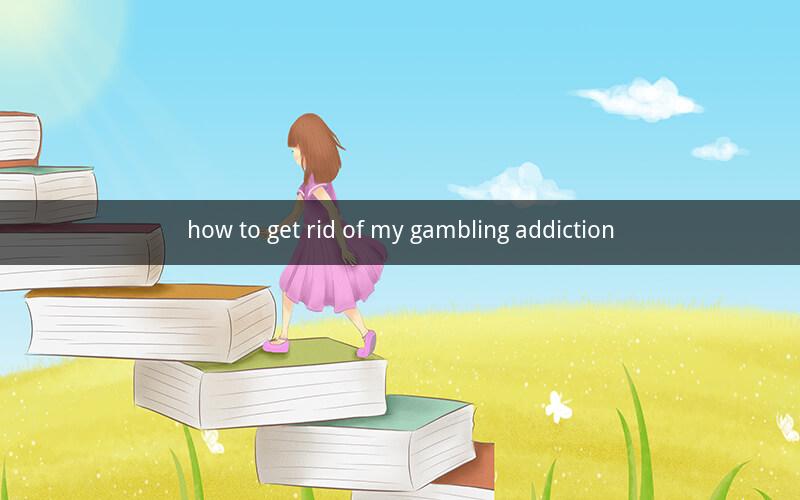
How to Get Rid of My Gambling Addiction
Table of Contents
1. Understanding the Problem
2. Identifying the Signs
3. Seeking Professional Help
4. Building a Support System
5. Developing a Financial Plan
6. Changing Habits and Routines
7. Learning Coping Strategies
8. Exploring Alternative Activities
9. Setting Clear Goals
10. Maintaining Sobriety
1. Understanding the Problem
Gambling addiction is a complex issue that affects individuals of all ages, backgrounds, and socioeconomic statuses. It is characterized by an inability to control gambling behavior, leading to significant negative consequences in various aspects of life, including financial, emotional, and social well-being. Recognizing the nature of the problem is the first step toward overcoming it.
2. Identifying the Signs
To address the issue, it is essential to identify the signs of gambling addiction. These may include:
- Feeling the need to gamble more to achieve the same thrill
- Lying to friends and family about gambling activities
- Using gambling as a way to escape problems or negative emotions
- Neglecting responsibilities due to gambling
- Experiencing mood swings or irritability when unable to gamble
3. Seeking Professional Help
Professional help is crucial in overcoming gambling addiction. Therapists, counselors, and support groups can provide guidance, support, and coping strategies. Here are some options:
- Individual therapy: A therapist can help identify the underlying causes of the addiction and develop personalized strategies for recovery.
- Group therapy: Joining a support group allows individuals to share experiences and learn from others who have faced similar challenges.
- Family therapy: Involving family members in the recovery process can help rebuild trust and strengthen relationships.
4. Building a Support System
A strong support system is vital for overcoming gambling addiction. This can include friends, family, and support groups. Consider the following:
- Communicate with loved ones about your struggles and seek their understanding and support.
- Attend support group meetings regularly to connect with others who understand your challenges.
- Establish boundaries with friends and family to prevent enabling behavior.
5. Developing a Financial Plan
Gambling addiction often leads to financial problems. Developing a financial plan is essential to address these issues:
- Create a budget to track income and expenses.
- Set aside funds for essential needs and savings.
- Seek financial counseling to help manage debts and create a repayment plan.
6. Changing Habits and Routines
Changing habits and routines is a critical aspect of overcoming gambling addiction:
- Remove tempting triggers, such as gambling websites or casinos.
- Replace gambling activities with healthier alternatives, such as exercise, hobbies, or socializing.
- Establish a daily routine that promotes a balanced lifestyle.
7. Learning Coping Strategies
Learning effective coping strategies can help manage cravings and stress:
- Practice relaxation techniques, such as deep breathing or meditation.
- Engage in activities that promote well-being, such as yoga or mindfulness.
- Seek alternative ways to deal with negative emotions, such as journaling or talking to a trusted friend.
8. Exploring Alternative Activities
Finding alternative activities can help fill the void left by gambling:
- Take up a new hobby, such as painting, cooking, or gardening.
- Join a sports team or fitness class.
- Volunteer in your community or participate in social events.
9. Setting Clear Goals
Setting clear goals can provide direction and motivation for recovery:
- Define short-term and long-term goals related to gambling addiction.
- Celebrate achievements along the way to maintain motivation.
- Seek support from friends, family, or professionals to help stay on track.
10. Maintaining Sobriety
Maintaining sobriety is an ongoing process. Here are some tips to help stay on track:
- Attend support group meetings regularly.
- Stay connected with friends and family who support your recovery.
- Continue to seek professional help or therapy as needed.
- Remain vigilant about triggers and warning signs of relapse.
Frequently Asked Questions
1. What is the best way to quit gambling?
- The best way to quit gambling is to combine professional help, support from loved ones, and developing healthy coping strategies.
2. Can I overcome gambling addiction on my own?
- While it is possible to overcome gambling addiction on your own, seeking professional help and joining support groups can significantly increase your chances of success.
3. How long does it take to overcome gambling addiction?
- The duration of recovery varies for each individual, but it often takes several months to years to fully overcome gambling addiction.
4. What if I relapse?
- Relapse is a common part of the recovery process. It is important to view it as a learning opportunity and seek support to help you get back on track.
5. How can I rebuild trust with my family after gambling?
- Rebuilding trust requires time, honesty, and transparency. Communicate openly with your family, demonstrate your commitment to recovery, and follow through on your promises.
6. Is there a medication that can help with gambling addiction?
- While there is no specific medication for gambling addiction, some medications may help manage underlying mental health issues that contribute to the addiction.
7. How can I prevent relapse?
- Preventing relapse involves identifying triggers, developing coping strategies, and maintaining a strong support system.
8. Can I still enjoy gambling in moderation if I have an addiction?
- No, it is not possible to enjoy gambling in moderation if you have an addiction. The risk of relapse is too high.
9. How can I pay off my gambling debts?
- Paying off gambling debts requires a structured financial plan, budgeting, and possibly seeking help from a financial counselor.
10. Is it possible to recover from gambling addiction completely?
- Yes, it is possible to recover from gambling addiction completely. With dedication, support, and ongoing efforts, individuals can lead a fulfilling life free from the grip of addiction.